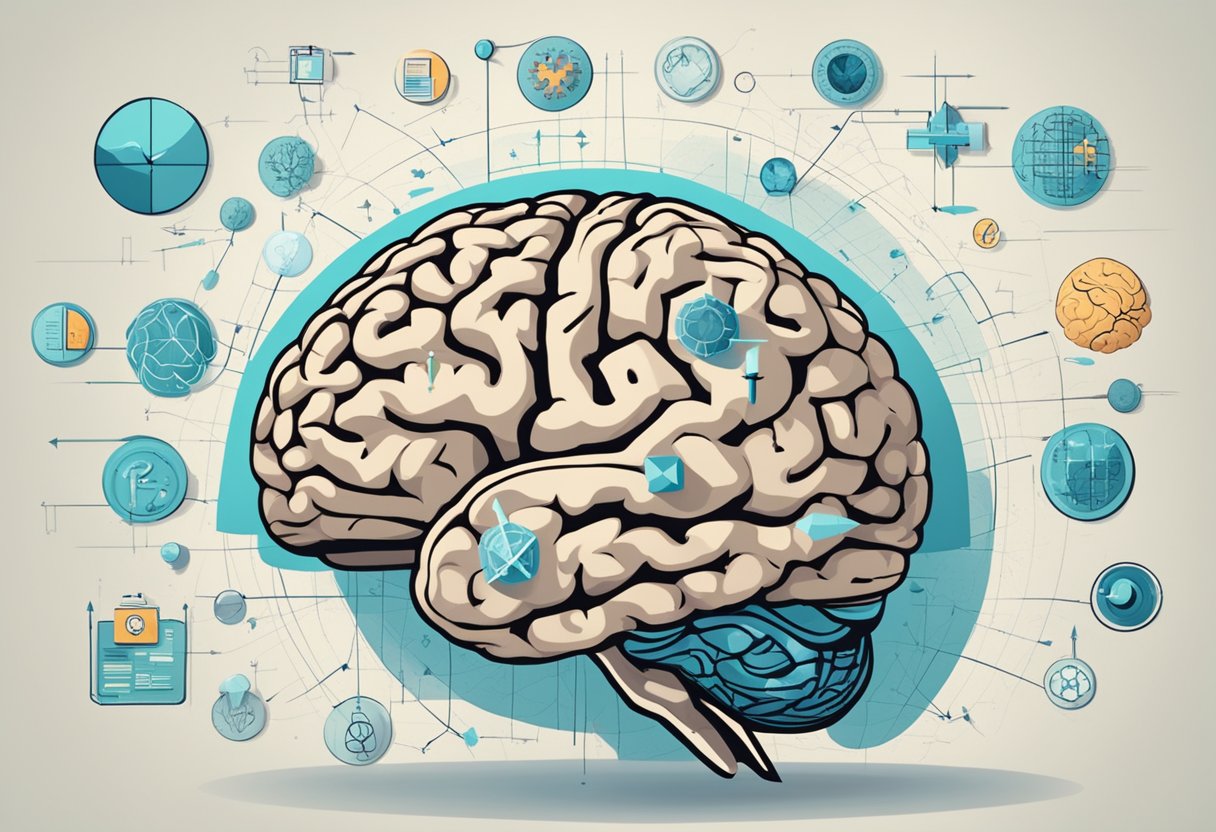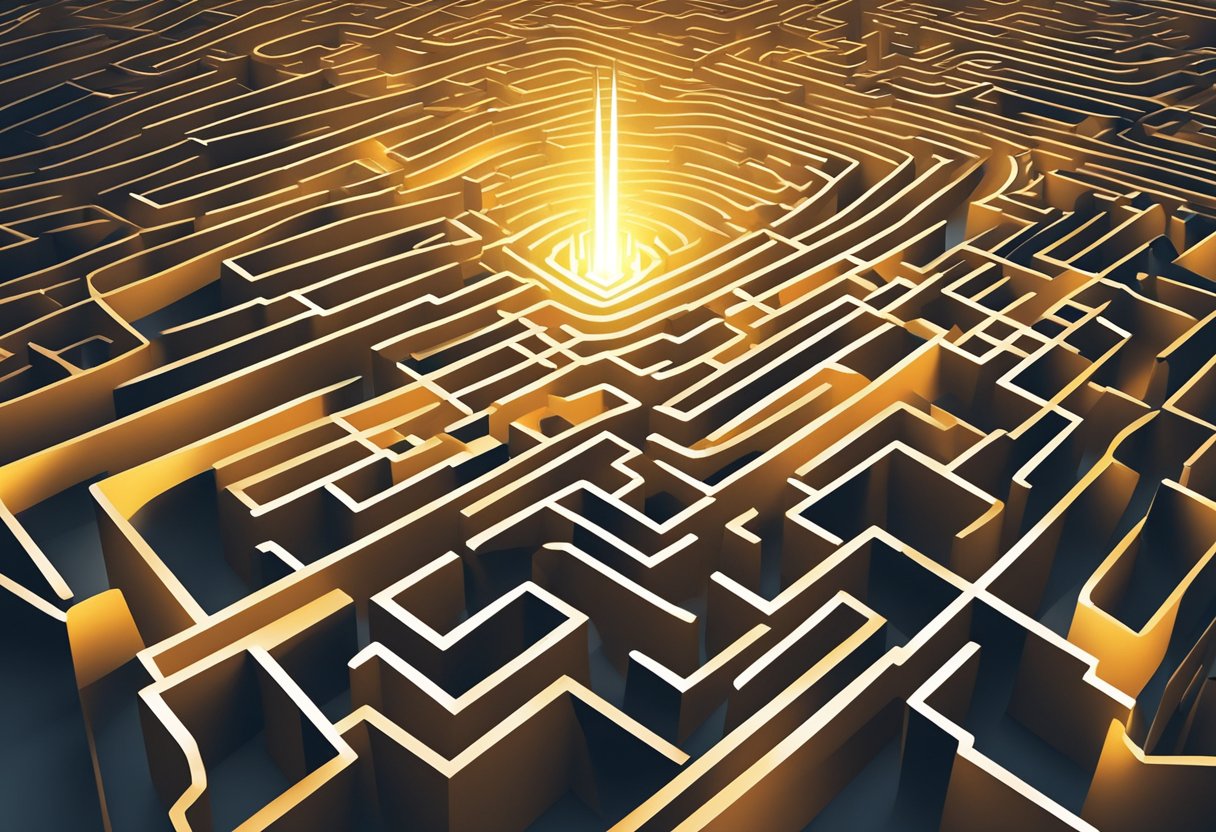Unlock the secrets to overcoming memory problems with expert advice and proven strategies for cognitive enhancement.
Table of Contents
Introduction – Memory Problems
Memory problems are common among the aging population and those experiencing various health conditions. Though occasional forgetfulness can be a normal part of life, significant memory loss is not inevitable as we age and may indicate underlying issues. Treatable medical conditions can contribute to memory loss, and appropriate management can help mitigate this distressing symptom.

Identifying the cause of memory problems is essential, as it can range from reversible factors like stress and nutritional deficiencies to progressive neurological diseases such as Alzheimer’s. Diagnosis involves a thorough evaluation, including medical history, cognitive tests, and physical examinations. Treatment strategies are then tailored to the specific cause, with options ranging from medication management to lifestyle modifications aimed at preserving cognitive function.
Key Takeaways
- Significant memory loss can indicate serious medical conditions, but not all memory problems are caused by irreversible factors.
- A clear diagnosis is crucial for effective treatment, involving a combination of cognitive assessments and physical evaluations.
- Treatment and management of memory problems are diverse, including both medical and lifestyle approaches to maintain cognitive health.
Understanding Memory Problems

Before delving into the intricacies of memory issues, it is essential to understand that memory is a complex function integral to our daily lives and that problems with memory can range from benign forgetfulness to conditions like dementia.
Defining Memory and Its Functions
Memory serves as the storage system of the brain, allowing individuals to retain and retrieve information over time. It encompasses the process of learning, storing, and recalling data, playing a vital part in one’s ability to carry out everyday tasks and learn new concepts. Memory dysfunctions can disrupt these processes, leading to challenges in performing daily activities.
Identifying Memory Problems and Symptoms
Memory problems can manifest in various forms, including memory loss, difficulties with recall, and increased forgetfulness. Symptoms may range from mild annoyances to severe cognitive impairments. It is important to differentiate between normal aging-related memory changes and more serious problems such as mild cognitive impairment (MCI) or dementia, which require medical attention.
The Role of Aging in Memory Decline
Aging is often associated with a natural decline in memory functions. However, there is a distinction between normal age-related forgetfulness and cognitive impairment that may hint at diseases like Alzheimer’s. Factors contributing to these memory problems may include physiological changes in the brain, health conditions, or genetic predispositions.
Memory and Aging Research Summary
| Key Findings | Related Entities |
|---|---|
| Mild forgetfulness is often part of the normal aging process | Aging, forgetfulness |
| More serious memory problems could indicate conditions such as MCI or dementia | Memory loss, MCI, dementia |
| Changes in brain structure and health conditions can contribute to cognitive decline | Brain changes, cognitive impairment |
External Resources
| Information | URL |
|---|---|
| Memory Problems, Forgetfulness, and Aging | National Institute on Aging |
| Understanding Memory Loss | Penn Memory Center |
| Exploring Mild Cognitive Impairment | Harvard Health |
| Tips to Improve Memory | Mayo Clinic |
| When to Seek Help for Memory Loss | Mayo Clinic |
Medical Causes and Risk Factors

Memory problems can stem from a variety of medical issues that range from neurological disorders to physical and psychological health conditions. Understanding the intricacies of these causes is vital for addressing memory concerns.
Neurological Disorders and Diseases
Neurological disorders such as Alzheimer’s disease and other forms of dementia are common causes of memory loss. These diseases progress over time, affecting the brain’s ability to function properly. A stroke can also cause memory problems due to brain damage. Diseases that disrupt blood sugar levels, like diabetes, are also known to affect cognitive function.
| Key Entity | Impact on Memory | Source |
|---|---|---|
| Alzheimer’s disease | Impairs memory and cognitive function | Mayo Clinic |
| Stroke | Can cause sudden or stepped memory loss | Cleveland Clinic |
Physical Health and Memory
Numerous physical health issues can impact memory. Thyroid disorders, including both hypothyroidism and hyperthyroidism, can influence cognitive abilities because of their role in regulating hormones and metabolism. Vitamin B-12 and Vitamin B1 deficiencies are also notable as they are essential for maintaining healthy nerve cells and red blood cells. Additionally, excessive alcohol consumption can lead to memory impairment.
| Condition | Related Nutrient | Memory Impact |
|---|---|---|
| Thyroid Disorders | Hormones | Alters cognitive function |
| Nutrient Deficiencies | Vitamin B-12 | Causes memory problems |
Psychological Factors Affecting Memory
Mental health conditions such as depression and anxiety can significantly affect memory. Stress and emotional disorders can alter the brain’s ability to record and recall information. Chronic stress is known to harm the hippocampus, an area of the brain involved in memory formation.
| Condition | Related Factor | Impact |
|---|---|---|
| Mental Health Disorders | Anxiety, Depression | Can lead to memory problems |
| Emotional Stress | Hormones | Affects the hippocampus and memory |
Overall, the interplay between various medical conditions and lifestyle factors can influence memory health. Providing care and attention to the brain and physical health is crucial for maintaining memory function.
Diagnosing Memory Problems

Identifying the underlying causes of memory problems is crucial, as they can stem from various medical conditions or changes in the brain. A thorough diagnosis involves several steps and consultations with healthcare professionals.
When to See a Doctor
If an individual or their loved ones notice changes in memory or cognitive function, it is important to schedule an appointment with a healthcare provider. Certain symptoms, such as forgetting recently learned information, struggling with problem-solving, and experiencing changes in mood or personality could suggest a need for professional evaluation. A doctor can help determine whether the memory problems are within the scope of age-related changes or related to conditions like Alzheimer’s disease.
Common Diagnostic Tests and Imaging
Upon visiting a doctor, various tests and diagnostic tools may be employed. A psychologist or neurologist may conduct initial tests to assess memory, problem-solving, attention, count, and language. For a more in-depth analysis, imaging tests such as magnetic resonance imaging (MRI) or computed tomography (CT) scans can be utilized to detect brain changes indicative of Alzheimer’s disease or other conditions.
| Diagnostic Method | Description | Relevance |
|---|---|---|
| Cognitive Tests | Conducted by psychologist or neurologist | Assesses mental function |
| MRI | Uses magnetic fields to produce detailed images | Detects brain structure changes |
| CT Scan | Employs X-rays for cross-sectional images | Identifies abnormalities |
These initial evaluations can guide a psychiatrist or neurologist in making a diagnosis, which may involve more specialized tests if needed. It is important for individuals experiencing memory issues to seek out a healthcare provider to determine the appropriate diagnostic path.
Treatment and Management

Effective management of memory problems encompasses an array of interventions and lifestyle modifications. Care plans typically integrate medical treatments with daily strategies to address cognitive health and quality of life.
Medical and Therapeutic Interventions
Medical treatments for memory issues depend on the underlying cause. For conditions like Alzheimer’s, doctors may prescribe medications such as cholinesterase inhibitors to improve symptoms by enhancing communication between nerve cells. In some cases, antidepressants are used to alleviate associated symptoms such as depression or anxiety, which can exacerbate memory problems. It is recommended that those experiencing cognitive impairments maintain a close relationship with organizations like the Alzheimer’s Association for support and access to educational materials.
| Key Findings on Medical Interventions | Related Keywords |
|---|---|
| Cholinesterase inhibitors can temporarily improve symptoms | Alzheimer’s, medications, cognitive health |
| Antidepressants may be prescribed for associated depression or anxiety | antidepressants, depression, anxiety |
Lifestyle Changes and Coping Strategies
Encouraging a healthy lifestyle can significantly mitigate the effects of memory loss. Regular exercise has been shown to contribute positively to overall cognitive health, while ensuring enough sleep can help maintain memory function. The application of memory tools like calendars and to-do lists as part of a daily routine can provide structure and reduce stress levels. In addition, techniques that promote relaxation and stress management are pivotal, as stress is known to impact memory and cognitive function negatively.
| Key Strategies for Lifestyle Modification | Related Keywords |
|---|---|
| Strengthening routines with memory tools | memory tools, daily routine |
| Regular physical activities to improve cognitive function | exercise, cognitive health |
| Adequate sleep is essential for memory consolidation | enough sleep, sleep, memory loss |
Prevention and Future Outlook

Maintaining cognitive health involves a multi-faceted approach including lifestyle adjustments and staying abreast of medical advancements. These strategies show promise in reducing the risk of memory-related disorders and improving the quality of life.
Promoting Cognitive Health
Regular exercise is pivotal for overall health and plays a significant role in enhancing cognitive functions. Research suggests that physical activity increases blood flow to the brain, fostering neural growth and reducing the risk of disorders like Alzheimer’s disease. Adequate sleep is another essential factor, as it helps consolidate memory and clear brain waste. Engaging in learning new skills and continuous education can also keep the mind sharp and potentially delay cognitive decline.
Research and Advancements in Memory Care
In memory care, ongoing research continues to unveil new treatments and interventions. Scientists work tirelessly to halt the progressive nature of Alzheimer’s and other dementias. Advancements such as personalized medicine show promise in diagnosing, predicting, and preventing these conditions before they fully develop. This proactive approach emphasizes the significance of patient empowerment and the potential of individualized treatment plans.
| Key Findings | Relevance | Sources |
|---|---|---|
| Regular exercise increases blood flow to the brain | Cognitive Health | Current and Future Treatments in Alzheimer’s Disease: An Update |
| Adequate sleep aids in memory consolidation | Cognitive Health | Late-onset Alzheimer’s disease: Symptoms, causes, and more |
| Personalized medicine for Alzheimer’s empowers patients | Research Advancements | Towards a future where Alzheimer’s disease pathology is stopped before it progresses |
| Learning new skills and education are linked to slower cognitive decline | Cognitive Health | Alzheimer’s Disease: Causes, Symptoms, Treatment & Stages |
Frequently Asked Questions
Memory loss can stem from a variety of causes and conditions. Understanding the different types of memory impairment is crucial for prevention and management. Reliable tests are available to determine memory problems, and certain strategies can help address memory issues caused by stress.
What are the common causes of memory loss and forgetfulness?
Memory loss can result from several factors, including chronic alcoholism, which impairs mental abilities and interacts negatively with medications. A Vitamin B-12 deficiency is also a common culprit, especially in older adults, leading to memory problems due to its role in maintaining healthy nerve cells and red blood cells. Additionally, hypothyroidism has been linked to memory issues. Details can be found on the Mayo Clinic website.
What are the different types of memory impairment?
There are two main types of memory loss: acute and progressive. Acute memory loss, also known as amnesia, typically occurs due to a sudden illness, injury, or event. Progressive memory loss is gradual and may signal a degenerative brain disease. Insight into different impairments can be gained by visiting the Cleveland Clinic.
How can memory loss be prevented in the elderly?
Memory loss prevention in the elderly can involve mental stimulation exercises, a healthy diet, physical activity, and social engagement. These actions help in maintaining brain health and cognitive function. The National Institute on Aging provides more information on preventing memory loss in older adults. (National Institute on Aging)
What are reliable tests to determine memory loss?
Doctors use a combination of medical history, physical exams, laboratory tests, and cognitive tests to assess memory loss. Objective measures include the Mini-Mental State Examination (MMSE) and the Montreal Cognitive Assessment (MoCA). For further details, Mayo Clinic serves as a resource. (Mayo Clinic)
What symptoms indicate the occurrence of memory loss?
Symptoms of memory loss encompass forgetting recently learned information, repeating questions, reliance on memory aids, or challenges in planning or solving problems. These can reflect normal age-related changes or indicate mild cognitive impairment (MCI). For comprehensive symptom coverage, Verywell Health offers a thorough overview. (Verywell Health)
What strategies can help reverse memory loss caused by stress?
Stress management strategies such as mindfulness, regular exercise, sleep hygiene, and adequate nutrition can all contribute to reversing stress-related memory loss. Reducing stress can improve cognitive functions by alleviating the burden on the brain. Techniques and recommendations for stress-induced memory improvement can be found through related healthcare providers.




